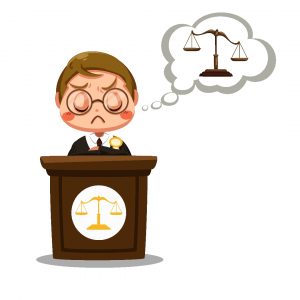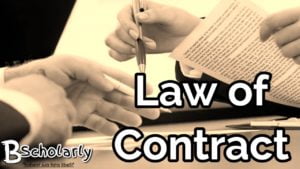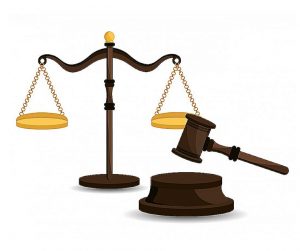How To Sue A Company in South Africa: Litigating against a firm in South Africa may be an intricate and demanding procedure. If you have faced financial loss, unjust termination, or other legal concerns with a corporation, it is crucial to comprehend the essential processes and factors involved in initiating legal proceedings. This article offers a thorough manual on initiating legal action against a corporation in South Africa.

It encompasses crucial aspects such establishing the organization’s legitimacy, evaluating its financial standing, substantiating the incurred damage, taking into account the expenses associated with litigation, and acknowledging the potential outcome of an unfavorable verdict. In addition, we will examine a case study in which tobacco businesses are taking legal action against the South African government. Furthermore, we will provide a compilation of law firms that may offer assistance with corporate cases in Johannesburg, Durban, and Cape Town.
Recommended: How To Sue A Bank in South Africa
How To Sue A Company in South Africa
1. Validating the Company’s Existence: Prior to initiating legal action against a business in South Africa, it is essential to authenticate the company’s existence and confirm that it has not undergone deregistration. It is crucial to do this step in order to verify if you are pursuing legal recourse against a valid organization. Initially, it is important to verify the registration status of the firm. To do this, you may go to the website of the corporations and Intellectual Property Commission (CIPC), which serves as the authoritative entity responsible for registering corporations in South Africa. By using the CIPC website, you have the ability to verify the registration status of a business by searching for its name or registration number. Provided that the firm is officially registered, you may continue with your legal action.

Aside from verifying the registration status, it is crucial to confirm that the business has not undergone deregistration.
Deregistration may happen due to a range of factors, including failure to meet legal obligations or a deliberate decision by the corporation to deregister. To ascertain the deregistration status of a firm, you may do a search on the CIPC website or directly communicate with the CIPC for the latest and most accurate information. By confirming the company’s existence and registration status, you may guarantee that you are pursuing legal recourse against a legitimate corporation and enhance the likelihood of a successful case.
Also see: Most Reliable Cars In The World
2. Evaluating the corporation’s Financial Position: When contemplating legal action against a corporation in South Africa, it is important to evaluate the firm’s financial status. This will aid in ascertaining if the corporation have the financial resources to cover any potential damages that could be granted. Prior to initiating legal action, it is crucial to ascertain the solvency of the organization. Solvency pertains to the capacity of a firm to fulfill its financial responsibilities and settle its debts. In the event of a company’s insolvency, it may lack the requisite financial resources to provide compensation for any incurred damages.

Assessing the company’s financial resources and assets is crucial in order to ascertain its ability to cover the costs of damages. This may include scrutinizing the company’s financial statements, balance sheets, and cash flow statements. Additionally, it is prudent to take into account any unresolved liabilities or legal disputes that might impact the company’s financial capacity to make payments. Through a comprehensive evaluation of the company’s financial condition, you may make a well-informed determination on the viability of pursuing legal recourse and the likelihood of successfully collecting the damages you are seeking.
3. Establishing Damage: In the context of legal action against a corporation in South Africa, it is essential to provide evidence demonstrating that you have incurred a financial or material loss due to the activities of such firm. It is necessary to collect enough proof to substantiate your assertion. Gathering proof is crucial in order to substantiate the magnitude of the damages you have incurred. The evidence you collect will vary based on the characteristics of your assertion. To bolster your case, get statements from any witnesses present during the circumstances that resulted in your loss.

The use of visual evidence may be very impactful in illustrating the extent of the damage or injury inflicted by the company’s activities. Obtaining expert views or reports may be important in some instances to substantiate your claim. For instance, in the case of a personal injury, the judgment of a medical expert might be very significant. By accumulating robust facts, you may construct a persuasive argument that unequivocally demonstrates the magnitude of your detriment.
Recommended: Best Fashion Schools In Canada 2024
4. Analyzing Financial records: Besides collecting proof, it is crucial to scrutinize the company’s financial records to demonstrate a clear connection between their conduct and your financial loss. This stage is especially crucial when pursuing monetary reparation. Acquire duplicates of the corporation’s financial documents, including balance sheets, income statements, and cash flow statements.

Conduct a thorough examination of these papers to detect any anomalies or indications of misconduct. If you lack familiarity with financial statements or want guidance in their interpretation, it is advisable to seek the counsel of a financial specialist who may provide valuable insights and aid in bolstering your argument. Utilize the collected facts and acquired financial data to determine the precise monetary amount of your loss. This will aid in ascertaining the precise amount you are requesting as remuneration.
5. Taking into account the expenses associated with legal proceedings: When making the decision to initiate a lawsuit against a firm in South Africa, it is crucial to carefully evaluate the financial implications of litigation. Litigation may incur substantial expenses, which might fluctuate based on the intricacy of the matter and the jurisdiction in which it is adjudicated. Prior to commencing legal proceedings, it is important to evaluate if you possess the financial means to cover the legal expenses included in litigating against a firm.

Acquiring legal counsel might incur significant expenses, thus it is crucial to possess a comprehensive comprehension of your financial circumstances and budget. It is recommended to get advice from various attorneys in order to obtain a cost estimate and make comparisons. Certain attorneys may propose a contingency fee agreement, in which their compensation is contingent upon the successful outcome of the case.
Litigation expenses might escalate substantially when the matter is brought before superior courts. The judicial system in South Africa has many tiers, including Magistrates’ Courts, High Courts, and the Supreme judicial of Appeal. Superior courts often use more intricate protocols and need more comprehensive legal counsel, leading to elevated expenses. It is crucial to take into account the possible costs linked to pursuing your case in a superior court and evaluate them in relation to the potential advantages.
Furthermore, it is recommended to engage in a conversation with your attorney about the possible expenditures and get a comprehensive comprehension of the anticipated charges at every phase of the legal proceedings. By thoroughly evaluating the expenses associated with legal proceedings, you may make a well-informed decision about the feasibility of initiating a lawsuit against a firm in South Africa.
Recommended: Exceptions to Privity of Contract: 6 Major Exceptions
6. Potential Consequences of Losing: In the event of losing the action against a firm in South Africa, there are various possible ramifications, including emotional and psychological distress, harm to reputations, and the need to cover the defendant’s legal expenses.
Recommended: Poorest Countries in the World and their GNI 2024
To summarize, legal disputes may have a significant impact on one’s emotional and psychological well-being. Experiencing a defeat in a legal proceeding may be demoralizing and can lead to feelings of anxiety, irritation, and letdown. It is essential to give priority to your well-being and seek assistance from friends, family, or experts if necessary.
It is essential to acknowledge the potential for losing a lawsuit, and equally vital to approach litigation with a pragmatic perspective. Seek the advice of a competent lawyer who can provide you with guidance, evaluate the potential hazards, and assist you in making well-informed choices.

Edeh Samuel Chukwuemeka, ACMC, is a lawyer and a certified mediator/conciliator in Nigeria. He is also a developer with knowledge in various programming languages. Samuel is determined to leverage his skills in technology, SEO, and legal practice to revolutionize the legal profession worldwide by creating web and mobile applications that simplify legal research. Sam is also passionate about educating and providing valuable information to people.